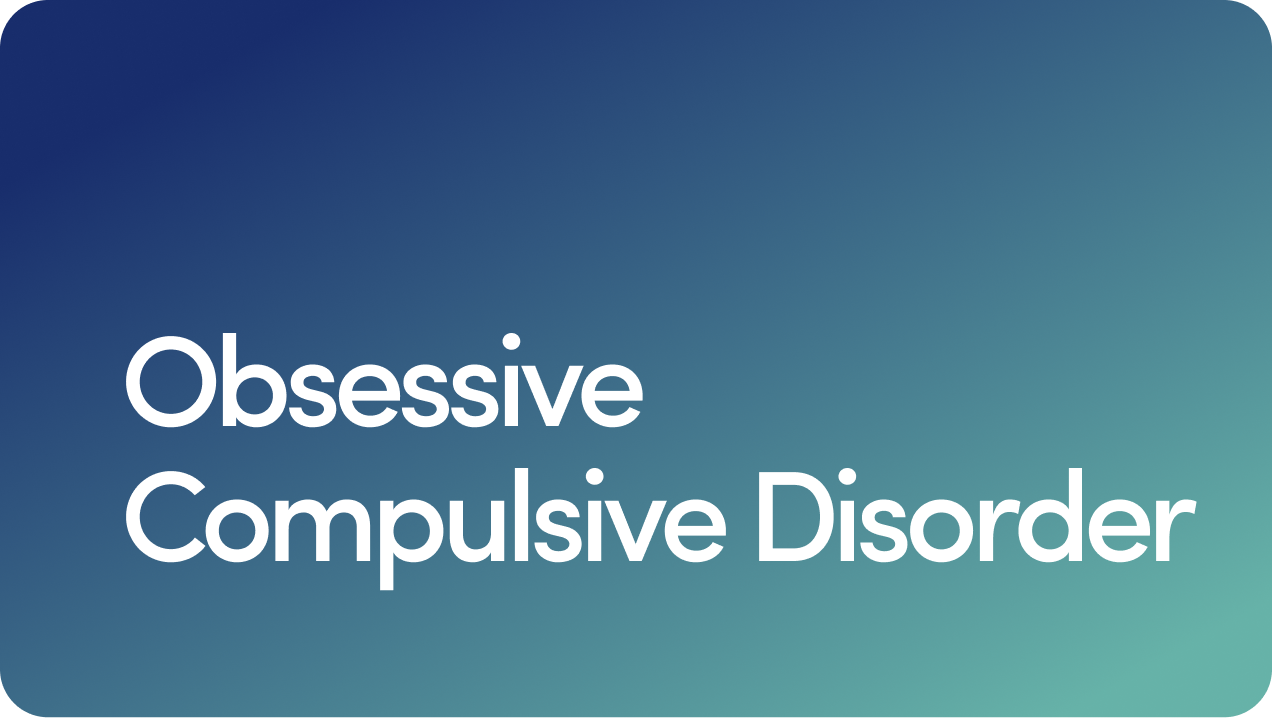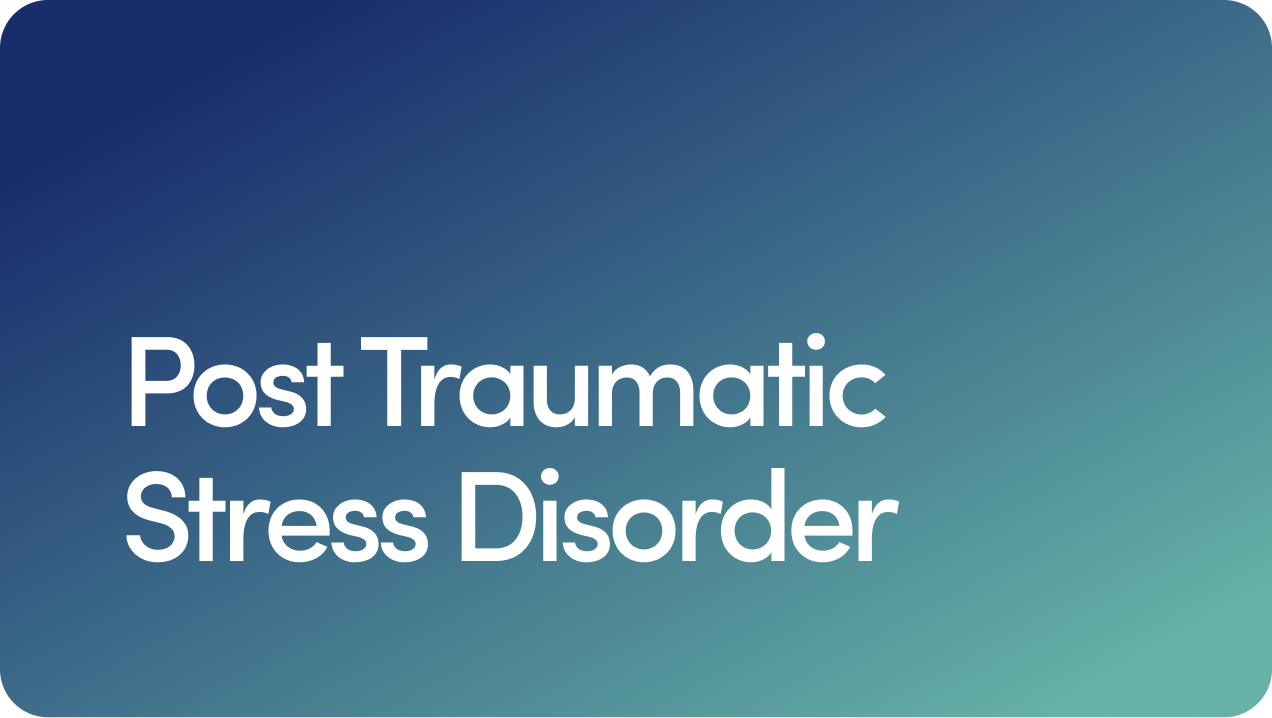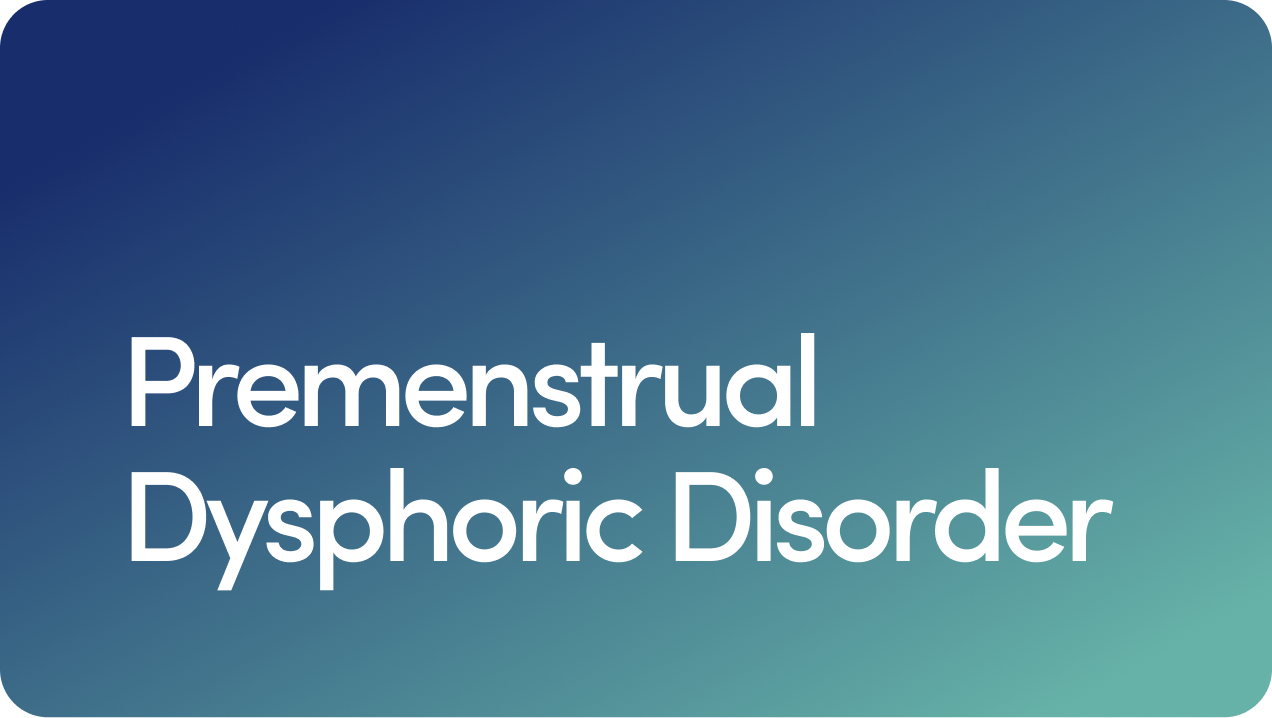Anxiety
Anxiety is common, but what is anxiety, really? It’s a feeling of worry, fear, or mental tension. If you have an anxiety disorder, this feeling can be overwhelming and may get worse over time. There are many different types of anxiety disorders and, luckily, many different treatments.
Overview
What Is Anxiety?
Anxiety is a feeling of stress, worry, or fear — this is the most simple anxiety definition. It can include many more feelings.
You might feel anxious in certain situations, like before an interview, date, or presentation. But this isn’t necessarily a bad thing.
Anxiety can help you feel more alert and focused so you perform better in these scenarios. And most of the time, anxiety settles down when the situation has passed.
Is Anxiety a Mental Illness?
Not in itself. But if you have an anxiety disorder, you might feel severe anxiety that can be overwhelming and stop you from doing daily activities. Your anxiety may also arise out of nowhere without an obvious trigger and hang around for a long time. This is classified as a mental illness.
Anxiety disorders are extremely common. They affect almost 20 percent of adults in the United States every year, making it the most common mental illness.
Types of Anxiety Disorders
There are many types of anxiety disorders, including:
Generalized anxiety disorder (GAD). As the name suggests, if you have generalized anxiety disorder, you might feel anxious about general situations and things. This could include everything from your job to your relationships to your finances. You’ll have anxious thoughts almost every day for at least six months.
Phobias. A phobia is an extreme and often irrational fear of a specific object or situation. You might have a phobia of flying, spiders, heights, crowded places, or social situations (aka social anxiety disorder). This fear may be so strong that it makes you avoid the thing at all costs. When you do face it, you might experience panic, a rapid heartbeat, and shortness of breath.
Panic disorder. Panic disorder can cause unexpected panic attacks — sudden periods of intense anxiety without a specific trigger. These attacks can last several minutes and cause a pounding heart and shortness of breath. You might get a few panic attacks a year or several a day. And you may feel anxious about triggering another panic attack.
You can experience more than one type of anxiety disorder at the same time.
Anxiety and Other Medical Conditions
If you have an anxiety disorder, you’ll have a higher risk of:
Depression
Substance abuse disorders
Suicidal thoughts and behaviors
Cardiac events
FYI, post-traumatic stress disorder (PTSD) and obsessive-compulsive disorder (OCD) aren’t considered anxiety disorders. But they both have similar symptoms to anxiety, and it is possible to have anxiety and PTSD or OCD.
PTSD develops after a traumatic event. You might experience nightmares, intrusive memories, and anxious behaviors. PTSD is classified as a trauma/stress-related disorder.
OCD is when you have obsessive thoughts or compulsive behaviors caused by intrusive or uncontrollable thoughts. You might find yourself repeating a behavior over and over again.
Symptoms
Symptoms of Anxiety
Anxiety looks and feels different for everyone, and different anxiety disorders come with different symptoms.
But in general, anxiety disorder symptoms include:
Feelings of intense fear or worry
Feeling irritable, tense, or restless
Uneasiness
Dizziness
Shortness of breath
Rapid heart rate
Aches and pains
Changes in behavior
Shaking or trembling
Your symptoms may get in the way of your work and personal life and worsen over time. You might also find that alcohol, caffeine, or certain medications trigger anxiety attack symptoms or make your anxiety worse.
If you have GAD, you might experience:
Trouble sleeping
Irritability
Difficulty concentrating
An inability to control feelings of worry
Headaches
Stomach upset
Fatigue
If you have a phobia, you might experience:
Intense worry when you encounter what you’re afraid of
Avoiding the thing or situation you’re afraid of
Blushing, sweating, or feeling self-conscious if it’s a social phobia
If you have panic disorder, you might experience:
Panic attacks
Sweating
Trembling
A pounding heart or heart palpitations
Chest pain
Avoiding situations that might trigger a panic attack
Feelings of impending doom
Feeling out of control
Feeling like you’re having a heart attack or dying
Some people may experience all or most of these anxiety symptoms, while others might only face a few.
Causes
Causes of Anxiety
There isn’t a solid answer to the question, “What causes anxiety?”
It’s not entirely clear, but it’s thought that anxiety may be caused by:
Genetics. If you have a family member with anxiety, you’re more likely to experience anxiety too. Specific phobias can even run in families.
Brain chemistry. The levels of certain chemicals in your brain can affect your mood and anxiety levels.
Environment. A traumatic life event, abuse, severe loss, your upbringing, or high stress levels at work could increase your odds of developing an anxiety disorder.
Risk Factors
Risk Factors for Anxiety
Anyone can develop an anxiety disorder at any time in life. But some risk factors increase your odds of experiencing anxiety.
In general, risk factors include:
Being female — anxiety disorders are more than twice as common in women than men
Experiencing a traumatic event — perhaps you were attacked by a dog as a child and now have an extreme phobia of dogs as an adult
Being shy or withdrawn — this might lead to social anxiety
Having a family history of anxiety or other mental health conditions
Having another mental disorder
Having a physical health condition like a thyroid problem or arrhythmia (irregular heartbeat)
The risk factors for anxiety vary depending on the type of anxiety disorder you have.
Diagnosis
Diagnosing Anxiety
Anxiety can be hard to diagnose. It’s an invisible condition, and you can’t just conjure up signs of anxiety — like a pounding heart or sweaty palms — at will when you’re sitting in a doctor’s office. Plus, some feelings of anxiety are a normal part of daily life.
To diagnose an anxiety disorder, your healthcare provider may start by asking about your symptoms. They might have you describe your feelings and the situations that trigger these feelings.
It may feel uncomfortable discussing anxiety, but it’s important to be honest with your provider to get an accurate diagnosis and the best anxiety treatment for you.
You might be asked to fill out a questionnaire about your symptoms to help determine which type of anxiety disorder you have.
Tests to diagnose anxiety include:
Hamilton Rating Scale for Anxiety (HAM-A)
Generalized Anxiety Disorder Scale-7 (GAD-7)
Social Phobia Inventory (SPIN)
A healthcare provider may also ask about your medical and family history. And they might do a physical exam to rule out other health problems that could be causing symptoms.
Other potential tests when assessing anxiety:
Blood test
Thyroid function test
Urine analysis
You might be referred to a mental health professional to help develop the best treatment plan for you.
Treatment
Anxiety Treatment
Anxiety can’t be completely cured, but effective treatments can drastically improve your symptoms and quality of life.
The best anxiety disorder treatment for you will depend on which type of anxiety disorder you have and how severe your symptoms are.
Here are the common treatment options.
Psychotherapy
Psychotherapy, or talk therapy, involves working with a therapist to talk through anxious feelings and learn techniques to help manage them.
There are many types of psychotherapy, including:
Cognitive behavioral therapy (CBT). CBT helps break the cycle of anxious thoughts and change the way you think, react, and behave in certain situations. It can involve relaxation techniques, role-playing, or journaling. You might have one-on-one CBT sessions with a therapist, in a group setting, or with self-guided resources.
Group therapy. Group therapy takes place in a group setting, usually with five to 15 people. In these support groups, you might discuss your feelings or learn new skills together to help manage anxiety. You may benefit from meeting and hearing the experiences of other people with the same type of anxiety as you.
Exposure therapy. Exposure therapy is often used as part of CBT. It involves exposing yourself to your fears and learning how to overcome them. Your therapist may recommend gradually exposing yourself to your fears and increasing how much you interact with them.
Most types of therapy can be done in person or online.
Medication
Medication can help reduce the mental and physical symptoms of anxiety. There are many types of anxiety medications, including:
Antidepressants. Beyond treating depression, antidepressants can help with anxiety. Selective serotonin reuptake inhibitors (SSRIs) are a first-line anxiety treatment. Your provider may recommend sertraline (Zoloft®), escitalopram (Lexapro®), or fluoxetine (Prozac®).
Benzodiazepines. Benzodiazepines offer quick relief from anxiety, so they can be useful for those with a panic disorder. But you can develop a tolerance and dependence on them, so they’re not always recommended. These meds include alprazolam (Xanax®), clonazepam (Klonopin®), and diazepam (Valium®).
Beta blockers. Beta blockers can reduce physical anxiety symptoms like a fast heartbeat. You can take them before an anxiety-provoking situation, so they can be useful for those with performance anxiety or a phobia of something like flying. Medications include propranolol (Inderal®), atenolol (Tenormin®), and metoprolol (Lopressor®).
Buspirone. Buspirone (BuSpar®) is usually used to treat GAD.
A healthcare provider can walk you through the pros, cons, and potential side effects of anxiety medications and help you find the best one.
If a medication doesn’t work for you, don’t fret. It can take a few tries to find the best anxiety medication for you.
Speak to your healthcare provider before stopping medication. They can recommend the best way to come off the drug and suggest other anxiety treatments to try.
Lifestyle Changes
Lifestyle changes can help reduce anxiety or keep it under control. A healthcare provider might recommend some of these daily adjustments alongside other anxiety treatments, like medication and therapy.
Lifestyle changes you can make include:
Maintaining a healthy lifestyle. Try to get enough sleep, eat a nutritious diet, and do regular exercise. This can support your mental health as well as your physical health.
Managing stress levels. Relaxation techniques like deep breathing, progressive muscle relaxation, and meditation can help keep stress and anxiety levels in check. Stress management may help to make therapy more effective too.
Exercise. All types of exercise can help ease anxious thoughts — even just a 10-minute walk. Experiment and find a type of physical activity you enjoy. Physical activity that involves mindfulness, like yoga and Tai Chi, could be especially useful.
Cut down on caffeine and alcohol. They can worsen symptoms of anxiety disorders.
Prevention
Anxiety Prevention Tips
You can’t control your genetics and life experiences, but there are a few steps you can take to reduce your chances of developing an anxiety disorder.
These include:
Eating a healthy diet
Exercising regularly
Keeping stress levels under control
Getting enough sleep
Reducing how much caffeine and alcohol you drink
Quitting smoking
Getting support from loved ones or mental health professionals through tough times
Some folks might be more susceptible to anxiety than others, but it’s manageable with the right tools. Don’t hesitate to seek help if you need it.
9 Sources
- American Psychological Association. (2019). Psychotherapy: understanding group therapy. https://www.apa.org/topics/psychotherapy/group-therapy
- Anxiety & Depression Association of America (ADAA). (2022). Anxiety disorders — facts & statistics. https://adaa.org/understanding-anxiety/facts-statistics
- Cackovic C, et al. (2023). Panic disorder. https://www.ncbi.nlm.nih.gov/books/NBK430973/
- Chand SP, et al. (2023). Anxiety. https://www.ncbi.nlm.nih.gov/books/NBK470361/
- National Institute of Mental Health (NIMH). (2024). Anxiety disorders. https://www.nimh.nih.gov/health/topics/anxiety-disorders
- National Library of Medicine. (2023). Anxiety. https://medlineplus.gov/anxiety.html
- National Library of Medicine. (2016). Phobias. https://medlineplus.gov/phobias.html
- U.S. Department of Health & Human Services (DHS). (2021). Anxiety disorders. https://www.womenshealth.gov/mental-health/mental-health-conditions/anxiety-disorders
- World Health Organization (WHO). (2023). Anxiety disorders. https://www.who.int/news-room/fact-sheets/detail/anxiety-disorders
Related Conditions
 Anxiety
Anxiety
 Depression
Depression
 OCD
OCD
 PTSD
PTSD
 Bipolar Disorder
Bipolar Disorder
 Premenstrual Dysphoric Disorder
Premenstrual Dysphoric Disorder
*All images feature a model portrayal
(unless otherwise noted).